Abstract: This specialist course will focus on an interdisciplinary approach to the Sino-Tibetan (ST) language family, with an emphasis on languages of the Tibeto-Burman (TB) branch spoken by ethnic minorities in China. In the course there will be an emphasis on linguistic aspects, such as the genetic relations between the ST languages in a historical perspective, comparative approaches to the study of language families, fieldwork research on endangered languages, fieldwork methodologies, as well as the cultural and religious background of ST speaking ethnic minorities in China.
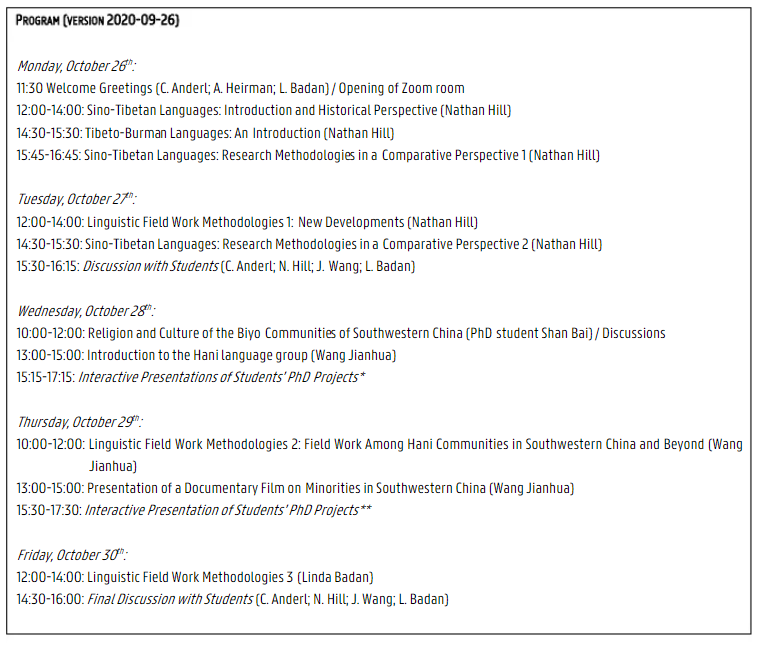
Thanks to the generous support of the TIANZHU FOUNDATION, we are pleased to award up to 800 Euros in travel remuneration of five international PhD students. This money can be used for travel, accommodation, and meals. To apply for this travel grant, please send a one-page cover letter and your CV to Christoph.anderl@ugent.be by July 31st, 2020. The selected candidates will be notified by August 10th , 2020.
Organizers
Name: Prof. Christoph Anderl
Faculty: Arts and Philosophy
Department: Languages and Cultures (Ghent Centre for Buddhist Studies / DiaLing)
E-mail: Christoph.anderl@ugent.be
Co-organizers:
Prof. Ann Heirman (Languages and Cultures – East Asia)
Prof. Linda Badan (Translation, Interpreting and Communication / MULTIPLES / DiaLing)
Course
Title: Sino-Tibetan Languages: Research Methodologies and Approaches to Linguistic Field Studies and Language Documentation among Tibeto-Burman Speaking Minorities in China
Dates: October 26 – 30, 2020
Venue: Het Pand, Ghent
Based on the current Covid19 situation, the DS could be also transformed into an online event, if necessary.
Topic of the course
The course focuses on the Sino-Tibetan language family and Tibeto-Burman languages as spoken in Southwestern regions of China, as well as the sociocultural, religious, and ecological contexts of ethnic minorities of these regions. The DS will provide an overview of ST languages in a historical perspective, and deal with the research of language families in a comparative context (especially contrasting / comparing the Indo-European and Sino-Tibetan groups). More specifically, the focus will be on Tibeto-Burman languages as spoken in the Southwestern region of Yunnan, China, many of them being endangered and on the verge of becoming extinct. The linguistic aspects will be discussed in a contextualized way, giving consideration to the sociocultural, religious (e.g., Buddhism, Christianity, and native religions), and environmental / ecological aspects of the ethnic minority communities. Another part of the course will concretely deal with linguistic fieldwork methodologies and the documentation of endangered languages.
Tentative programme with time schedule: The five-day course will have 5 – 6 contact hours a day (ca. 27 contact hours all together), includinglectures, discussions of research material, presentations by the PhD students, round-table discussions, and documentary film screenings.
Program
Monday, October 26th:
11:30 Welcome Greetings (C. Anderl; A. Heirman; L. Badan) / Opening of Zoom room
12:00-14:00: Sino-Tibetan Languages: Introduction and Historical Perspective (Nathan Hill)
14:30-15:30: Tibeto-Burman Languages: An Introduction (Nathan Hill)
15:45-16:45: Sino-Tibetan Languages: Research Methodologies in a Comparative Perspective 1 (Nathan Hill)
Tuesday, October 27th:
12:00-14:00: Linguistic Field Work Methodologies 1: New Developments (Nathan Hill)
14:30-15:30: Sino-Tibetan Languages: Research Methodologies in a Comparative Perspective 2 (Nathan Hill)
15:30-16:15: Discussion with Students (C. Anderl; N. Hill; J. Wang; L. Badan)
Wednesday, October 28th:
10:00-12:00: Religion and Culture of the Biyo Communities of Southwestern China (PhD student Shan Bai) / Discussions
13:00-15:00: Introduction to the Hani language group (Wang Jianhua)
15:15-17:15: Interactive Presentations of StudentsÕ PhD Projects*
Thursday, October 29th:
10:00-12:00: Linguistic Field Work Methodologies 2: Field Work Among Hani Communities in Southwestern China and Beyond (Wang Jianhua)
13:00-15:00: Presentation of a Documentary Film on Minorities in Southwestern China (Wang Jianhua)
15:30-17:30: Interactive Presentation of StudentsÕ PhD Projects**
Friday, October 30th:
12:00-14:00: Linguistic Field Work Methodologies 3 (Linda Badan)
14:30-16:00: Final Discussion with Students(C. Anderl; N. Hill; J. Wang; L. Badan)*
Presentations: (1) Selin Grollmann (Univ. of Bern): A grammar of Nachiring: Describing an endangered language of eastern Nepal /(2) Valentina Punzi (Univ. of Tartu): Linguistic identity and cultural heritagization in the Sino-Tibetan borderlands: reflections of a 90hou Baima ritual expert on mother tongue / (3) Nikita Kuzmin (Univ. of Pennsylvania): ÒHow to master the Tangut language? A newview on Tangut manuscripts with Tibetan glosses from Khara-khoto ** Presentations: (4) Deng Bingcong (Max Planck Institute, Euroasia3angle Project): Transeurasian loanwords in Sino-Tibetan: Whatcan they tell us? / (5) Pascal Gerber (Univ. Bern): A historical grammar of Mewahang: Aim, Methods and Preliminary Findings / (6) Bai Shan (Ghent Univ.): Field studies among Biyo communities
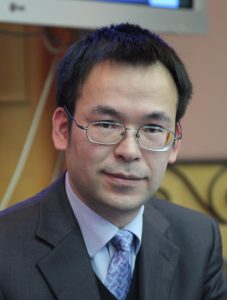 Professor XUAN Fang 宣方 is a research fellow of the Institute for Advanced Studies in Religion, Renmin University of China, as well as the executive member of Journal of Religion. His main academic interests focuse on Chinese Buddhist meditative tradition and Modern Chinese Buddhism, particularly Humanistic Buddhism (renjian fojiao), in which fields he published a book and more than 40 articles including. Furthermore, he is also guest professor of many Buddhist academic institutes such as the Institute of Chinese Buddhist Culture, Institute of Peking Buddhist Culture, Peking University, Chinese University of Hong Kong, Xiamen University, and Yunnan University. Xuan Fang will give lectures, seminars and workshops on a variety of topics and at various levels during his stay at Ghent University (6 January–3 March 2020). He will also closely cooperate in the framework of the current research projects.
Professor XUAN Fang 宣方 is a research fellow of the Institute for Advanced Studies in Religion, Renmin University of China, as well as the executive member of Journal of Religion. His main academic interests focuse on Chinese Buddhist meditative tradition and Modern Chinese Buddhism, particularly Humanistic Buddhism (renjian fojiao), in which fields he published a book and more than 40 articles including. Furthermore, he is also guest professor of many Buddhist academic institutes such as the Institute of Chinese Buddhist Culture, Institute of Peking Buddhist Culture, Peking University, Chinese University of Hong Kong, Xiamen University, and Yunnan University. Xuan Fang will give lectures, seminars and workshops on a variety of topics and at various levels during his stay at Ghent University (6 January–3 March 2020). He will also closely cooperate in the framework of the current research projects.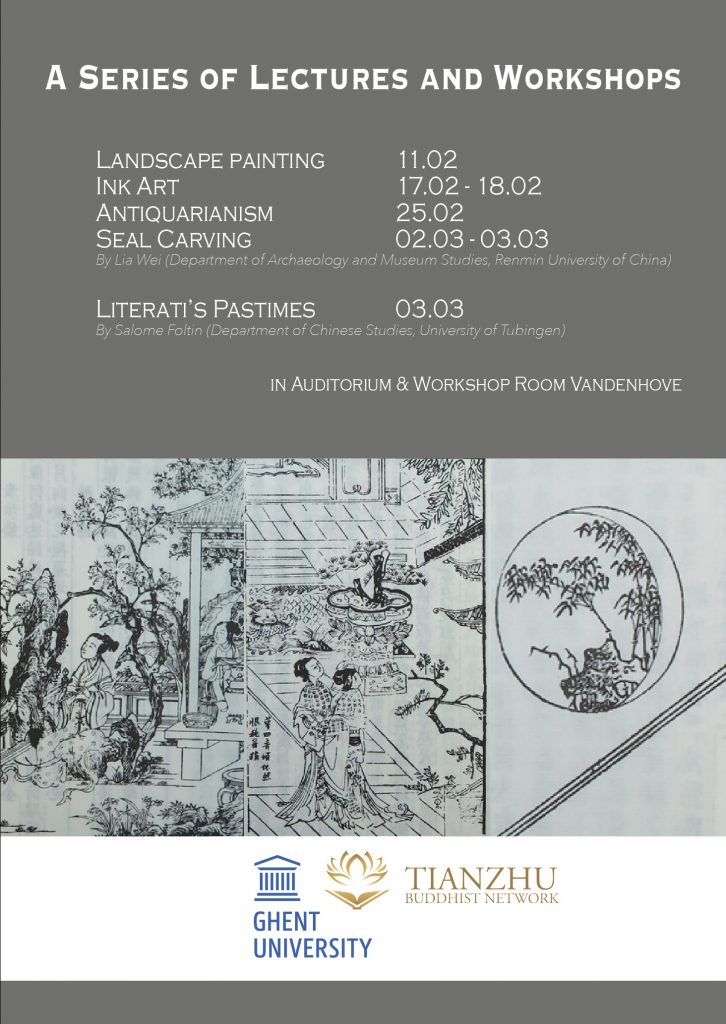
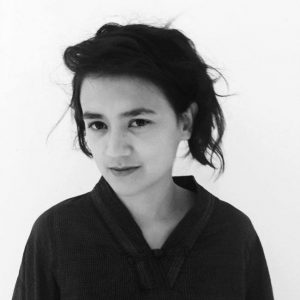 Dr. Lia WEI is currently based at the Department of Archaeology and Museum Studies in Renmin University of China, conducting research and teaching on the archaeology of culture contact and the intersection between intangible and material cultural heritage, as well as contributing to several research-oriented, educational or curatorial collaborations between Renmin University and European partners (Université de Genève, Ghent University).
Dr. Lia WEI is currently based at the Department of Archaeology and Museum Studies in Renmin University of China, conducting research and teaching on the archaeology of culture contact and the intersection between intangible and material cultural heritage, as well as contributing to several research-oriented, educational or curatorial collaborations between Renmin University and European partners (Université de Genève, Ghent University).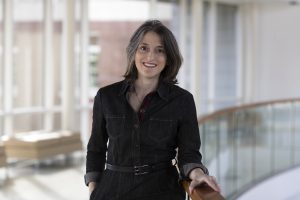
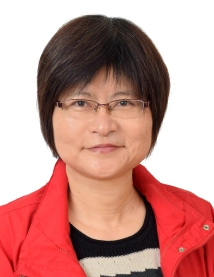 Dr. Yu-chen Li received her Ph.D. degree in 2000 from Cornell University. She is currently the chair of the Graduate Institute of Religious Studies at National Cheng Chi University. Yu-chen Li focuses on gender issues in Buddhism, such as the development of Bhiksuni sangha and Buddhist interaction with local culture through women. Her recent research deals with the conversion process of vegetarian women to Buddhism in 20th century Taiwan and Southeast Asia. Yu-chen Li published numerous works such as The Buddhist Nuns in Tang Dynasty, The Narrative of Sexuality and Desire among Sacred/Ordinary Men and Women, and Buddhism and Women in Postwar Taiwan, as well as more than 40 papers. Professor Li will contribute to the Doctoral School Specialist Course “Women and Nuns in Chinese Buddhism” (3-6 June 2019) as guest lecturer.
Dr. Yu-chen Li received her Ph.D. degree in 2000 from Cornell University. She is currently the chair of the Graduate Institute of Religious Studies at National Cheng Chi University. Yu-chen Li focuses on gender issues in Buddhism, such as the development of Bhiksuni sangha and Buddhist interaction with local culture through women. Her recent research deals with the conversion process of vegetarian women to Buddhism in 20th century Taiwan and Southeast Asia. Yu-chen Li published numerous works such as The Buddhist Nuns in Tang Dynasty, The Narrative of Sexuality and Desire among Sacred/Ordinary Men and Women, and Buddhism and Women in Postwar Taiwan, as well as more than 40 papers. Professor Li will contribute to the Doctoral School Specialist Course “Women and Nuns in Chinese Buddhism” (3-6 June 2019) as guest lecturer. Lectures
Lectures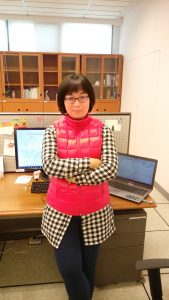 Lin Ching-hui received her PhD from the Chinese Culture University (Taipei). Her dissertation is titled A study of political views in Laozi, Zhuangzi and The Yellow Emperor’s Four Classics. She is project assistant at the Dharma Drum Institute of Liberal Arts. Currently she works as an editor for the Database of Medieval Chinese Texts Project. Lin Ching-hui is also Assistant Professor at the Department of Chinese Literature of the Chinese Culture University.
Lin Ching-hui received her PhD from the Chinese Culture University (Taipei). Her dissertation is titled A study of political views in Laozi, Zhuangzi and The Yellow Emperor’s Four Classics. She is project assistant at the Dharma Drum Institute of Liberal Arts. Currently she works as an editor for the Database of Medieval Chinese Texts Project. Lin Ching-hui is also Assistant Professor at the Department of Chinese Literature of the Chinese Culture University.